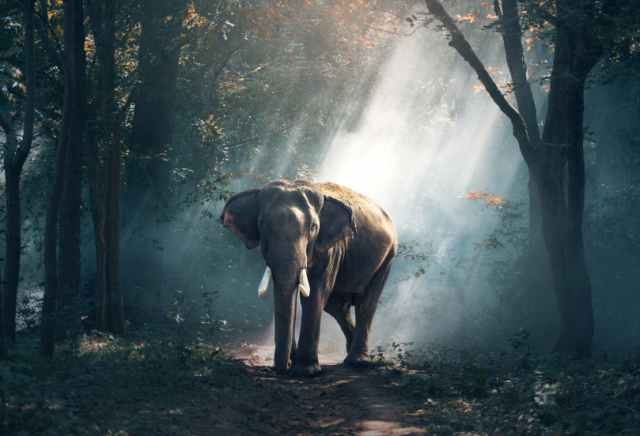
The other day I saw reported on the news that Chester Zoo had announced they may end up having to close due to loss of income because of the pandemic. It woke me up to the fact that many non-profit organisations such as zoos and aquariums who do important conservation work are economically endangered right now.
I have been more aware of these places via their online presence during lockdown, and I appreciate the accessibility it affords to people who cannot get to those places. But I also realise now, which I had not thought of before, that they would also financially suffer from losing visitors during lockdown. I want to do something to try and help them survive, so I am writing this blog post, to draw more awareness and urge anyone who is able and cares about the conservation of our planet to consider doing what you can; whether that’s just posting about it on social media, donating, fundraising, or even volunteering.
I checked out Chester Zoo’s website, and they’ve posted the following:
“Not being able to open, despite being a huge outdoor site with all the necessary safety measures in place, is having a devastating impact on our much-loved zoo. We’re heading towards debt in excess of £24m by the end of 2020 – this will financially cripple us. We need to raise £1.6m each month to keep going.” (See the full message.)
There are various options on their site for financial support; donations and animal adoptions. (There is also lots of educational information and activities available, for adults and kids alike.) They also have a JustGiving page. If you can’t afford a large donation or a commitment to a regular one, an idea I had would be to donate £1 (or other amount if you want), every time you watch something of theirs on Youtube—and the same goes for other places. While writing this I decided that watching educational things from zoos/aquariums, museums and other cultural things was going to be my regular “reward” for productivity. (I drafted this during my first virtual writing retreat, where we got asked what our reward would be for hitting our goal, so that’s where that comes from …)
The “virtual experience” I’m sure will change things in terms of income of visitors once these places re-open. I expect there will be some who decide that rather than forking out money for a trip, they can stay at home and watch on Youtube, which will be income lost if they had been able to actually go. However, I think the videos and so on will actually reach more people—not just who can’t go in person (which I’m usually in the category of), but maybe spark interest in people who can go but otherwise might not have. It could also spark more interest and awareness in what they are doing. Personally, I think that, provided they survive, this could be a very good thing.
I keep missing Chester Zoo’s livestreaming, but am making an effort to try and remember to watch one of the videos now and again. At present I haven’t done much of this—my default choice during my downtime is fictional escapism—but I’m going to make more of an effort to watch more educational things in my downtime. Not just because it’s something I am very good at overlooking as an entertainment option, but because I want to be more knowledgeable about the world I live in, in many areas. The same applies to history, museums, different cultures; one of the reasons (aside from the enjoyment factor) I want to do my series of virtual holidays. (Still working on those!)
Extinction is something that I’m aware of and concerned about, but has never been the most forefront of environmental concerns in my mind. I am very concerned about the environment generally; I believe we’re supposed to be the caretakers of creation, but have done a terrible job. There are so many issues within the wider issue of the environment, it’s hard to keep track of them all! Plastic has been a big thing for me, especially since my disability means I have to rely on it more than other people. (I will probably blog on this at some point; I’ve been wanting to create more awareness of how disability and environment issues interact since before the pandemic.) Food-related areas, such as over-fishing, pollution and pesticides, is another big thing for me—perhaps because food has always been a huge part of my life, growing up on a restricted medical diet. But I want to be more consciously aware of other areas, and find ways of helping from home besides signing the odd petition that comes into my inbox.
This mention of Chester Zoo came around the same time as a message that Britain’s honeybees are under threat from another predator, the Asian hornet. On my holiday to Norway several years ago, I learned a bit about species being under threat from invasive species—I don’t know whether this has always been an issue, or just since humans started travelling more widely and enabled creatures to hitchhike with them! But it’s something I want to know more about, and have made a resolution to try and educate myself more.
I believe this pandemic will have many positive impacts on the way we think about and treat the planet. But there are also many negative impacts; whether it’s the necessary increased use of plastic to protect ourselves, the threat of closure to organisations who do vital work, or other things I haven’t thought of yet. Now is the time to think about what we can do to play our part in creating a better future, in any way we can, however small.
Links:
Chester Zoo
List of zoos in the UK (includes aquariums, wildlife parks, etc)
Bees: Information and ways to help
Causes of bee decline
Explore.org: Just discovered this site (via Youtube suggestions); lots of nature livecams, plus educational materials